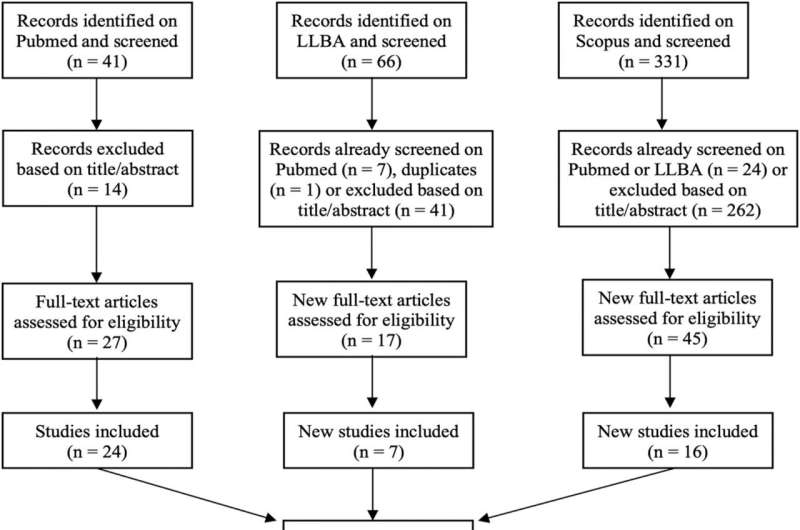This article has been reviewed according to Science X's editorial process and policies. Editors have highlighted the following attributes while ensuring the content's credibility:
fact-checked
trusted source
proofread
Language acquisition may work differently in people with autism

You're looking at a truck. You're with a young child and he follows your gaze. He's interested in the object you're looking at without you pointing at it. This is called joint attention and it is one of the primary ways children learn to connect words with objects and acquire language.
Lack of joint attention is a core feature of autism. Until now, it was thought that stimulating joint attention in people with autism would help them express themselves verbally. But a meta-analysis of 71 studies on autism challenges this assumption and suggests that people with autism spectrum disorders may acquire language differently.
The study—by Laurent Mottron, a professor in the Department of Psychiatry and Addiction at Université de Montréal and a psychiatrist at the Hôpital en santé mentale Rivière-des-Prairies of the CIUSSS du Nord-de-l'Île-de-Montréal; Mikhail Kissine, a professor of linguistics at Université Libre de Bruxelles; and Ariane St-Denis, a medical student at McGill University—is published in Neuroscience & Biobehavioral Reviews.
The authors looked at all studies of joint attention and language in children with autism since 1994.
They then selected all those that reported a clear measure of structural language using metrics such as vocabulary size, and excluded those that measured only communication skills.
In neurotypical individuals, social interaction plays an essential role in language development. "It makes sense to assume, therefore, that the ability to establish a shared attentional frame may increase the opportunities for autistic children to attend to linguistic stimuli and engage in communicative experiences," the authors of the study write.
However, their meta-analysis did not find significant language gains from interventions aimed at promoting social communication in people with autism.
"Linking language outcomes to joint attention in autism is somewhat paradoxical, as the significant proportion of autistic children who become verbal still have a diagnosis of autism, a core component of which is, precisely, atypically low joint attention," they observe. For example, children with Asperger's develop impressive language skills without developing comparable social skills.
Of the 71 studies, only 28 reported a correlation between stimulation of joint attention in young children with autism and development of simple vocabulary.
"These studies do show that joint attention is associated with a very simple vocabulary of less than five words, but they cannot predict whether the child will be able to express himself correctly at age 7 or 8," Mottron notes. Twenty-five other studies show no correlation between joint attention and vocabulary development in children with autism.
It is possible that people with autism learn language differently, without social interaction, he adds. "For example, in immigrant populations whose native language is not English, children with autism learn English by looking at digital tablets and never learn to speak their parents' language."
If some children with autism are less sensitive to the human voice than to the written word, this could open up new avenues for intervention, Mottron says. "In this case, we should redirect autistic children towards exposure to non-communicative language, in addition to talking to them."
The study therefore opens the door to new ways of addressing neurodiversity.
More information: Mikhail Kissine et al, Language acquisition can be truly atypical in autism: Beyond joint attention, Neuroscience & Biobehavioral Reviews (2023). DOI: 10.1016/j.neubiorev.2023.105384



















